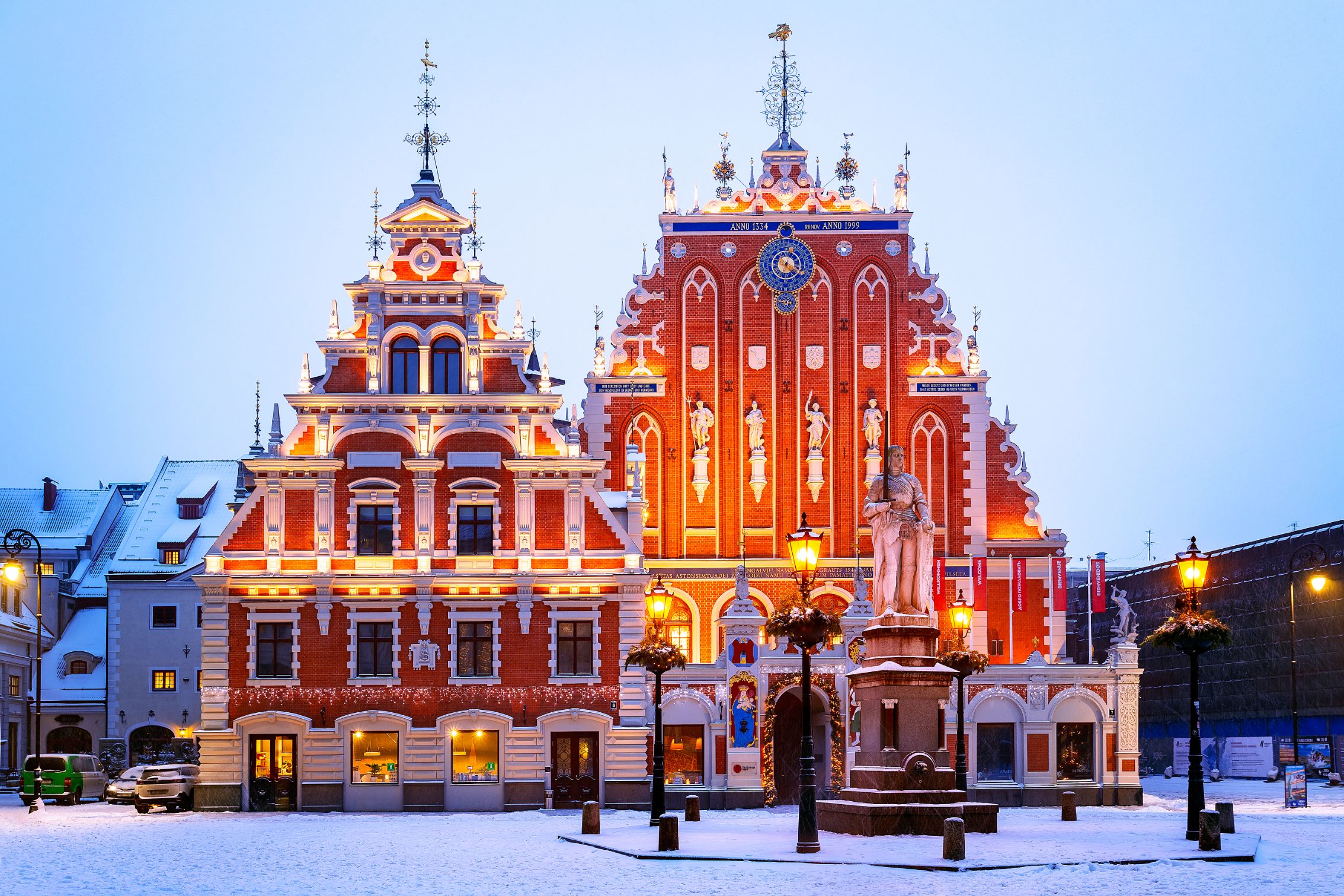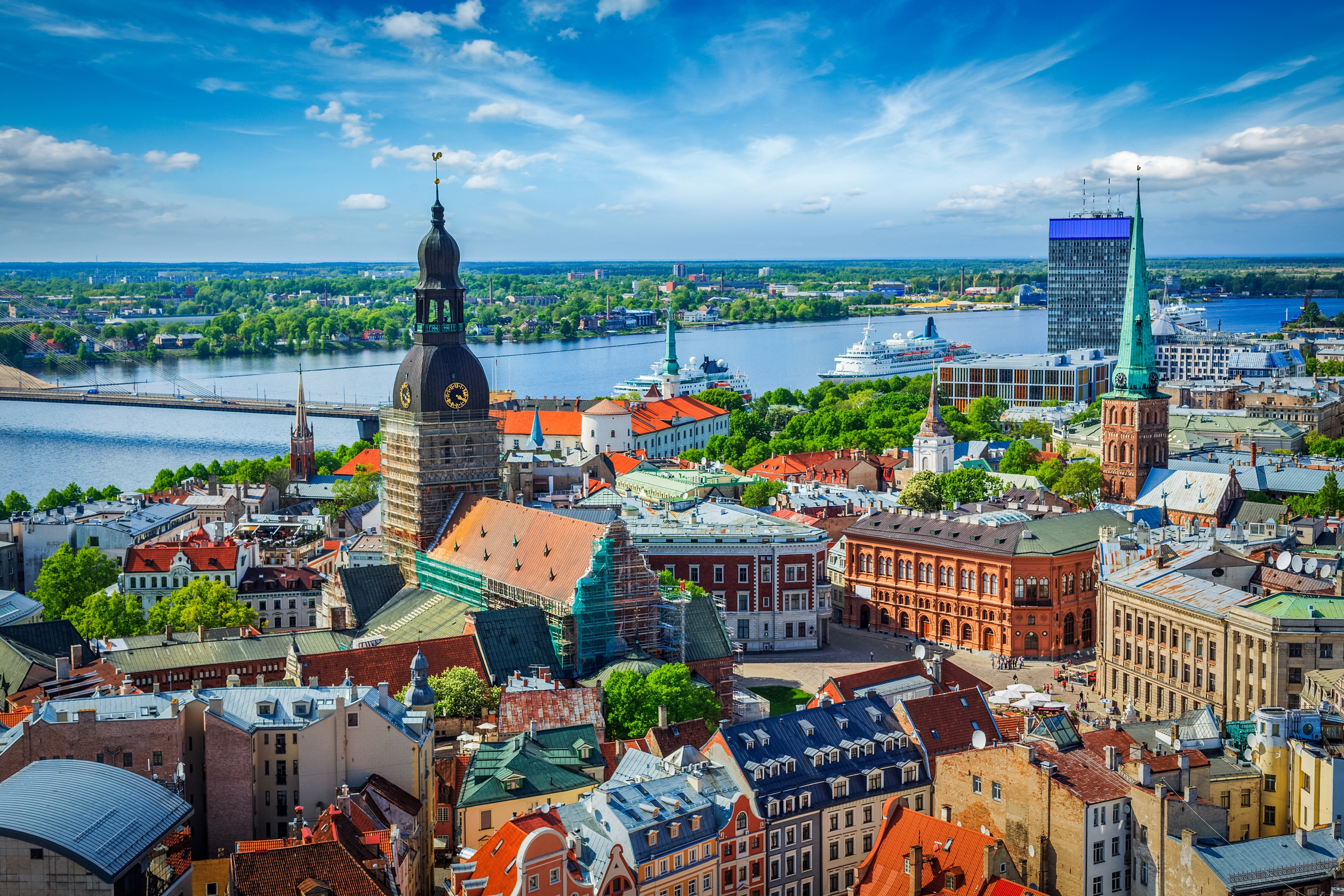



Riga, Latvia’s capital, is set on the Baltic Sea at the mouth of the River Daugava. It's considered a cultural center and is home to many museums and concert halls. The city is also known for its wooden buildings, art nouveau architecture and medieval Old Town. The pedestrian-only Old Town has many shops and restaurants and is home to busy Livu Square, with bars and nightclubs.
The best time to visit Riga, Latvia is typically from May to September. Here's why:
Weather: Mild and pleasant (avg. highs 15–22°C / 59–72°F)
Highlights: Long daylight hours, blooming parks, and fewer tourists
Events: Riga Opera Festival (June)
Weather: Warmest months (avg. highs 20–25°C / 68–77°F)
Highlights: Outdoor cafes, festivals, beach trips to nearby Jūrmala
Events: Riga City Festival (August)
Weather: Still relatively mild (avg. highs 14–18°C / 57–64°F)
Highlights: Fewer crowds, colorful foliage, lower prices
Avoid visiting in late fall through early spring (November–March) unless you're prepared for cold weather, short days, and snow, though the city can look magical around Christmas.
From Abroad:
By Air:
Riga International Airport (RIX) is Latvia's main airport, well connected to major cities in Europe and the Middle East.
No direct flights from many Asian countries (like Bangladesh), so you’ll likely connect via Istanbul (Turkish Airlines), Doha (Qatar Airways), or Frankfurt/Amsterdam (Lufthansa/KLM).
From the Airport to City Center:
Bus #22 or taxi (15–20 min)
Ride-sharing apps like Bolt are popular and affordable
Old Town (Vecrīga) – UNESCO-listed medieval area with cobbled streets and colorful buildings
Riga Central Market – One of Europe’s largest markets, housed in old Zeppelin hangars
House of the Blackheads – Iconic building in Town Hall Square
St. Peter’s Church – Panoramic city views from the tower
Art Nouveau District – Over 800 unique buildings in this architectural style
Riga Castle – Official residence of the Latvian President
Freedom Monument – National symbol of independence
Latvian Ethnographic Open-Air Museum – Outdoor museum of traditional Latvian life
Take a walking tour of Old Town (free or guided)
Enjoy boat cruises on the Daugava River
Explore museums like the Museum of the Occupation of Latvia
Try local Latvian cuisine: grey peas with bacon, rye bread, and honey beer
Visit Jūrmala (30 mins by train) – a beach town with spas and pine forests
Attend local festivals (e.g., Riga City Festival in August)
Relax in parks like Bastejkalna Park or Mežaparks
Budget:
Tree House Hostel – Great Old Town location
Cinnamon Sally Backpackers Hostel – Social and clean
Mid-Range:
Wellton Riga Hotel & SPA – Central, with spa facilities
Hestia Hotel Draugi – In the heart of Old Town
Luxury:
Grand Hotel Kempinski Riga – 5-star with elegant views of the Opera House
Pullman Riga Old Town – Stylish and close to major attractions
Grey peas with speck (pelēkie zirņi ar speķi) – National dish made with hearty peas and smoked bacon
Rye bread (rupjmaize) – Dense and dark; often served with butter or garlic
Piragi (pīrāgi) – Small baked pastries filled with bacon and onion
Kvass – A traditional non-alcoholic drink made from fermented rye bread
Cold beet soup (aukstā zupa) – Refreshing summer soup made with kefir, beetroot, cucumber, and dill
Smoked fish – Especially sprats, popular in markets and coastal areas
Lido Atputas Centrs – Traditional buffet-style Latvian cuisine in a large log-house setting
Folkklubs Ala Pagrabs – Underground tavern with hearty Latvian food and craft beer
Milda – Elegant Latvian restaurant, ideal for sampling regional dishes
Rozengrāls – Medieval-themed restaurant in Old Town with a historical menu
3 Pavāru Restorāns (3 Chefs Restaurant) – Modern Latvian fusion in a casual-chic setting
Garage Wine Bar – Great wine selection with small plates near the Art Nouveau district.
Latvian Song and Dance Festival – A UNESCO-recognized event held every 5 years (next in 2028), with thousands of performers
Folk traditions – Strong ties to nature and the seasons, especially during Jāņi (Midsummer Festival) with flower crowns, bonfires, and singing
Opera and Ballet – Riga is known for its beautiful Latvian National Opera; performances are high quality and affordable
Architecture – From Gothic churches in Old Town to world-famous Art Nouveau buildings
Crafts – Look for handwoven textiles, ceramics, amber jewelry, and wood carvings at local markets
Latvians may seem reserved at first, but are generally polite and helpful
Tipping in restaurants: ~10% is appreciated but not obligatory
Many young Latvians speak English, especially in Riga
Respect for nature and local traditions is important
Removing shoes when entering homes is common.